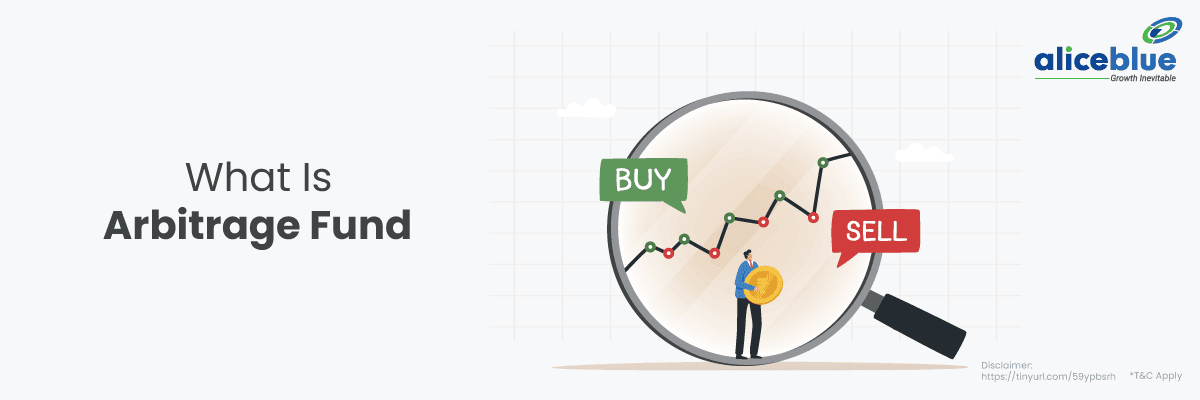An arbitrage fund is a type of mutual fund that generates returns by capitalizing on the price differential between the cash and derivatives markets. These funds are hybrid in nature, meaning they have the flexibility to invest in both equity shares and debt instruments, although the primary focus remains on equity arbitrage opportunities. By capitalizing on the price differences of a single security across different markets or exchanges, these funds aim to provide investors with relatively risk-free returns. They are particularly appealing during volatile market phases as they tend to provide a cushion against losses.
Arbitrage Mutual Funds
Arbitrage mutual funds are a category of funds that seek to generate profits by exploiting the price discrepancies of a security listed in different markets. They engage in buying low in one market and selling high in another. These funds are managed by skilled fund managers who use sophisticated trading strategies to identify and act upon arbitrage opportunities. By doing so, they aim to provide a low-risk investment avenue to investors while offering the potential for reasonable returns.
For example, let’s consider a case where shares of Company X are trading at ₹100 on the National Stock Exchange (NSE) and ₹101 on the Bombay Stock Exchange (BSE). The fund manager of an Arbitrage Mutual Fund will buy shares on NSE and simultaneously sell them on BSE, thus earning a profit of ₹1 per share minus transaction costs. Over time, these small profits accumulate, contributing to the overall returns of the fund.
How Do Arbitrage Mutual Funds Work?
Arbitrage mutual funds work by capitalizing on the price differences of a single security or related securities across different markets. The primary mechanism of generating returns is based on the concept of arbitrage.
- Identification of Arbitrage Opportunities: Fund managers continually monitor different exchanges and markets to identify discrepancies in the pricing of securities.
- Execution of Trades: Once an arbitrage opportunity is identified, the fund executes simultaneous buy and sell orders to capitalize on the price differential.
- Hedging: Arbitrage funds may also engage in hedging to manage the risks associated with trading in derivatives and other financial instruments.
- Portfolio Rebalancing: The portfolio is periodically rebalanced to ensure it aligns with the fund’s investment objectives and risk tolerance.
- Distribution of Returns: The profits generated from arbitrage opportunities are distributed to the investors in the form of dividends or are reinvested back into the fund.
Who Should Invest In Arbitrage Funds?
The primary reason to invest in arbitrage funds is their ability to provide relatively stable returns with lower risk compared to pure equity funds. They serve as a good investment avenue for individuals seeking to earn reasonable returns with a lower risk profile.
- Risk-Averse Investors: Those who prefer lower risk in their investment portfolios are a good fit for an arbitrage fund.
- Short to Medium Term Investors: Individuals with a short to medium-term investment horizon may find arbitrage funds suitable.
- Tax Efficiency Seekers: Arbitrage funds enjoy tax benefits which make them attractive for investors seeking tax efficiency.
- Market Volatility Hedgers: Investors looking to hedge against market volatility.
- Diversification Seekers: Those looking to diversify their portfolio with a mix of equity and debt exposure.
Arbitrage Fund Returns
Arbitrage Fund are predominantly hybrid in nature, allocating assets between equity and debt. The strategy aims to provide investors with a combination of the growth potential from equities and the stability from debt instruments. In general, arbitrage funds yield between 5 and 7 percent on the initial investment. This is greater than liquid funds or short-term debt funds in an environment with low interest rates (when the RBI reduces rates). Therefore, arbitrage funds represent a profitable investment alternative.
Alice Blue, a leading financial platform, provides detailed performance tracking for various arbitrage funds. Here are some key takeaways:
- Return Consistency: Arbitrage funds aim to offer consistent returns, irrespective of the market conditions. This is accomplished by buying and selling securities on separate markets concurrently in order to profit from the existing price differential.
- Low Volatility: The nature of arbitrage funds means they have lower volatility compared to pure equity funds. By hedging their equity exposure with an equal and opposite position in the futures and options market, they mitigate a significant amount of risk.
- Performance Metrics: Evaluating an arbitrage fund’s performance over various timeframes, such as 1 month, 3 months, 6 months, 1 year, and 3 years, is crucial. This allows investors to get a comprehensive view of the fund’s historical performance.
- Benchmark Comparisons: It is important to compare the returns of an arbitrage fund to a relevant benchmark. This not only gives a perspective on how the fund is performing but also if it’s delivering value to its investors.
Arbitrage Fund Exit Load
Arbitrage funds may have exit loads to discourage premature withdrawals. Here’s a typical structure:
| Parameter | Amount (Rs.) |
| Minimum Investment | 5,000.00 |
| Minimum Additional Investment | 1,000.00 |
| Minimum SIP Investment | 150.00 |
| Minimum Withdrawal | 500.00 |
| Exit Load | 0.25% if redeemed within 30 days |
Arbitrage Fund Taxation
Arbitrage funds are taxed as equity funds. Short-term capital gains (STCG) are taxed at 15% if the units are sold within one year. Long-term capital gains (LTCG) are tax-free up to Rs 1 lakh and taxed at 10% without indexation benefit if the gains exceed Rs 1 lakh and the units are sold after one year.
Suppose Mr. Sharma invests INR 5 lakhs in an arbitrage fund on January 1, 2023. Over the course of the year, let’s assume his investment grows to INR 5.6 lakhs by December 31, 2023. If he decides to sell his units on this date, his capital gain would be INR 60,000 (INR 5.6 lakhs – INR 5 lakhs).
Scenario 1: Short-term Capital Gains Tax (STCG)
Since Mr. Sharma sold his units within a year, his gains will be considered as short-term. The STCG tax rate for arbitrage funds is 15%.
The formula for calculating the STCG Tax is:
STCG Tax = Capital Gain × STCG Rate
STCG Tax = INR 60,000 × 0.15
STCG Tax = INR 9,000
So, Mr. Sharma will need to pay INR 9,000 as short-term capital gains tax, and he will receive INR 51,000 as his net gain.
Scenario 2: Long-term Capital Gains Tax (LTCG)
Now, let’s assume Mr. Sharma decides to sell his units on January 2, 2024, which is after holding his investment for more than a year. Let’s assume the value of his investment has grown to INR 5.7 lakhs by then. His capital gain now would be INR 70,000 (INR 5.7 lakhs – INR 5 lakhs).
Since the long-term capital gains up to INR 1 lakh are exempt from tax, Mr. Sharma won’t have to pay any tax on his gains, as his gain of INR 70,000 is under this threshold.
However, if his gain was, say, INR 1.5 lakhs, then he would have to pay LTCG tax on INR 50,000 (INR 1.5 lakhs – INR 1 lakh exemption).
The formula for calculating the LTCG Tax is:
LTCG Tax = (Capital Gain – Exemption Threshold) × LTCG Rate
LTCG Tax = (INR 1.5 lakhs – INR 1 lakh) × 0.10
LTCG Tax = INR 5,000
In this case, Mr. Sharma would pay INR 5,000 as long-term capital gains tax, and his net gain would be INR 1.45 lakhs.
These scenarios illustrate how the timing of selling units in an arbitrage fund can affect the taxation and ultimately the returns Mr. Sharma would realize from his investment.
Best Arbitrage Funds
Arbitrage mutual funds capitalize on security price differences across markets. These funds try to lock in risk-free profits by buying and selling the same security in different markets. They are safe and preferred by short-term investors seeking low risk.
Here are some of the top Arbitrage Funds:
| S.No | Fund Name | Category | Risk | 1Y Returns | Rating out of 5 | Fund Size(in Cr) |
| 1 | Tata Arbitrage Fund | Hybrid | Low | 7.8% | 5 | ₹7,445 |
| 2 | Kotak Equity Arbitrage Fund | Hybrid | Low | 7.9% | 4 | ₹27,412 |
| 3 | Edelweiss Arbitrage Fund | Hybrid | Low | 7.9% | 5 | ₹6,984 |
| 4 | Invesco India Arbitrage Fund | Hybrid | Low | 8.1% | 5 | ₹8,156 |
| 5 | Nippon India Arbitrage Fund | Hybrid | Low | 7.8% | 4 | ₹11,137 |
| 6 | Axis Arbitrage Fund | Hybrid | Low | 7.5% | 4 | ₹3,083 |
| 7 | Aditya Birla Sun Life Arbitrage Fund | Hybrid | Low | 7.7% | 4 | ₹5,476 |
Disclaimer: Investments in financial products are subject to market risks. Before making any investments, please read the scheme-related documents carefully.
Do you want to expand your knowledge about mutual funds? We’ve got a list of must-read blogs that will help you do just that. Just click on the articles to find out more.
What Is Arbitrage Fund – Quick Summary
- Arbitrage funds are mutual funds that exploit price discrepancies of assets across different markets to generate returns.
- They work by buying low in one market and selling high in another, with fund managers continuously identifying such opportunities.
- Ideal for risk-averse investors, short-term goals, seeking tax efficiency, during market volatility, and for better liquidity.
- Returns are modest, dependent on market conditions for arbitrage opportunities.
- They have a typical exit load structure to discourage premature withdrawals.
- Taxed as equity funds with STCG at 15% and LTCG at 10% beyond Rs 1 lakh.
- Some of the top arbitrage funds include Tata Arbitrage Fund, Invesco India Arbitrage Fund, Kotak Equity Arbitrage Fund.
- Invest in top arbitrage funds at no cost with Alice Blue. Most importantly, with our 15 Rs brokerage plan, you can save up to ₹ 1100 brokerage every month when compared to other brokers. We also don’t levy clearing charges.
Arbitrage Mutual Funds – FAQs
1. What Is Arbitrage Fund?
Arbitrage Fund is a type of mutual fund that tries to make money by taking advantage of differences in the prices of assets that are sold in different markets.
2. How does an arbitrage fund work?
Arbitrage Fund works by identifying price differences, buying low in one market, selling high in another, and distributing the profits among investors.
3. Is it good to invest in arbitrage funds?
Yes, investing in arbitrage funds especially for risk-averse investors, those with short-term goals, or seeking tax-efficient and liquid investments.
4. What is the difference between FD and an arbitrage fund?
The main difference between FD and an arbitrage fund is that FDs offer a fixed return while arbitrage funds’ returns are variable but generally lower risk compared to other equity funds.
5. What is the return of the arbitrage fund?
Returns are modest and influenced by market conditions, with recent data showing average returns of around 5 to 7%.
6. What is the lock in period for an arbitrage fund?
There’s no lock-in period for an arbitrage fund, but exit loads may apply for withdrawals within a short duration.
7. What are the benefits of an arbitrage fund?
Benefits of an arbitrage fund include Lower risk, tax efficiency, better liquidity, suitability for short-term goals, and potential to invest during market volatility.
To gain a better understanding of the topic and access more information , explore the articles below that cover mutual funds, stock market insights, trading strategies, and organizational perspectives.



